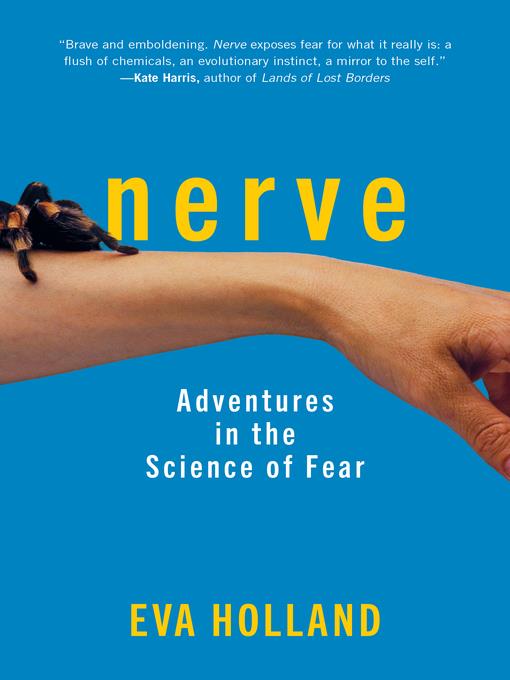
Nerve
Adventures in the Science of Fear
کتاب های مرتبط
- اطلاعات
- نقد و بررسی
- دیدگاه کاربران
نقد و بررسی

February 1, 2020
Her mother's unexpected death inspires a Yukon Territory-based adventurer and travel journalist to face her fears. In a harmonious blend of memoir and science reporting, Outside correspondent Holland describes her attempts to "learn to master my fear," embarking on a three-year project of research and treatment following the devastating death of her mother. Her mother had been an orphan, shaken by the death of her own mother, which left the author anticipating her mother's death more fearfully than anything else. When Holland's fears were realized, she fell apart, unable to work or deal with people and falling into free-floating anxiety and the occasional panic attack. Other fears came to the fore of her consciousness--e.g., a fear of heights from a childhood escalator mishap (though she later learned that her father had suffered from something similar and that such fears might be genetic in origin) and lingering PTSD from a series of car crashes. The book is most compelling at its most personal, as the author makes her story seem both specific and universal: "An irony: fear is an experience that unites us, even as, in the moment, it makes us feel very much alone." Holland faced her challenges through both exposure therapy and pharmaceutical applications, and she traces the theories of fear and how to treat it, including Freudian therapy, lobotomy, electroshock treatment, and other more modern approaches. Throughout the narrative, the author develops herself as a protagonist whose fears are serious enough to benefit from treatment but whose condition should strike a responsive chord in many readers. Her goal is not to eliminate fear, which serves as a tool for self-preservation, but to put it into perspective. By the end, she writes, "I am much less afraid of fear itself." Science and psychology inform the engaging memoir of an author on a self-help mission.
COPYRIGHT(2020) Kirkus Reviews, ALL RIGHTS RESERVED.

March 1, 2020
Fear is essential for human survival, acknowledges Outdoor correspondent Holland, but when her anxieties began seriously to inhibit her life, the author decided to conduct an in-depth exploration of the science of fear in an attempt to conquer her own. Here Holland examines phobias, trauma, and existential fears. Each category is meaningful for Holland, as she has a fear of heights, fear of driving after a series of car accidents, and a life-long fear of losing her mother (which sadly came to pass). Holland walks readers through the science behind this emotion, specifically what happens in the brain during an terrifying experience. She also deciphers much of the research aimed at helping people overcome their feelings of dread. Using herself as a guinea pig, Holland explored various treatment paths, including exposure therapy and other clinical and pharmaceutical approaches. VERDICT Combining anecdotes that document her personal vulnerabilities with tales of outdoor adventure and just enough scientific research, Holland crafts an engaging and unique memoir. Fans of the self-help genre and popular science in the style of Mary Roach will enjoy this debut title.--Ragan O'Malley, Saint Ann's Sch., Brooklyn
Copyright 2020 Library Journal, LLC Used with permission.

March 1, 2020
In this readable overview of what happens when human beings lose their nerve, author Holland employs relatable life experiences to explore multiple facets of fear. Some might think that the author, a Yukon-dwelling journalist who writes about travel and intense outdoor activities, wouldn't be someone who scares easily. However, after experiencing a meltdown during a recreational ice climb, Holland became fascinated with what causes fear, and what makes fear go away. Using her personal trauma triggers?her mother's death, multiple car wrecks, and heights?Holland explores types of fear (phobias, horror, anxiety, dread); psychological, neurological, and biological responses; evolving medical treatments (black bile purges, exorcisms, lobotomies, electroshock therapy, eye movement desensitization and reprocessing, habituation therapy, drugs), and opinions from an array of contributors (Hippocrates, Freud, Frank "Fear is the mind killer" Herbert, Professor Remus Lupin). Readers share in the journey as Holland confronts her fears and comes to successfully manage them. Detailed chapter notes and a selected bibliography round things out. This might encourage readers to identify, examine, and tackle fears of their own.(Reprinted with permission of Booklist, copyright 2020, American Library Association.)

























دیدگاه کاربران